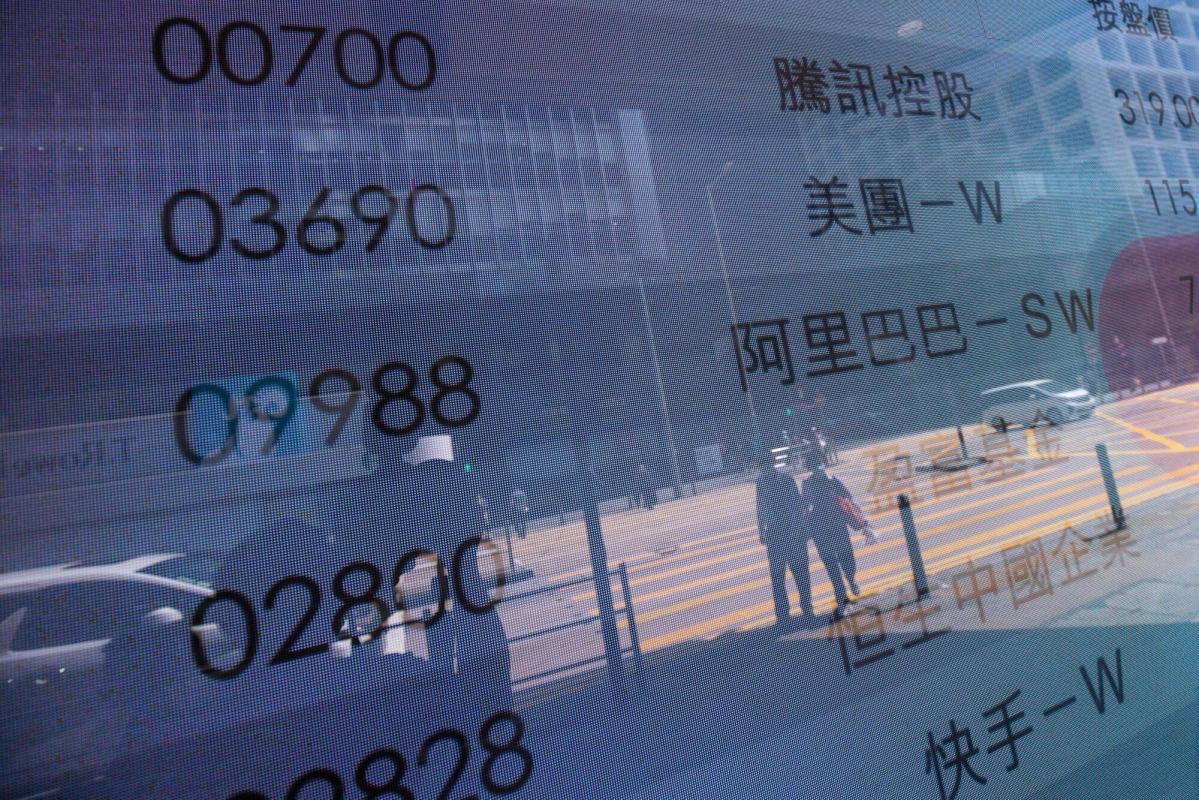Chinese Stocks in Hong Kong Swing to Gain as Stimulus Calls Grow

(Bloomberg) -- A gauge of Chinese stocks listed in Hong Kong swung to a gain in volatile trading as investors debated whether weaker macro data will prompt the government to bolster stimulus.
Most Read from Bloomberg
The Hang Seng China Enterprises Index closed up 0.3% after earlier sliding as much as 1.3%. Property shares were among the biggest decliners, with a gauge of the sector dropping as much as 1.8%, while utility stocks rose. Mainland markets are shut until Wednesday for holidays.
Disappointing economic data over the weekend is adding pressure on the authorities to ramp up fiscal and monetary stimulus if the nation is to reach this year’s growth target. As deflation gets entrenched, investors are hoping the government will boost fiscal spending and or even try to directly help the consumer.
“Support from fiscal policy, which has lagged throughout 2024, could step up,” Wei He, an economist at Gavekal Research, wrote in a client note. “The government will probably introduce some additional stimulus measures in coming months.”
“Still, those measures are unlikely to convince market participants that nominal growth prospects are improving,” he said.
Failure to achieve the annual growth target may further undermine investor confidence, with overseas funds already pulling a record amount of money out of the country in the second quarter. A rebound in the nation’s equities earlier this year has lost momentum, with the CSI 300 Index closing at its lowest since 2019 last week. Declines may increase in absence of a forceful stimulus.
China’s central bank indicated late last week that it will step up its fight against deflation and prepare additional policies to revive the economy, after credit data showed private confidence remained weak despite previous interest-rate cuts. The nation is poised to cut interest rates on more than $5 trillion of outstanding mortgages as early as this month in a bid to spur consumption, Bloomberg News reported last week, citing people familiar with the matter.
“The recent Chinese economic data paints a grim picture, with key indicators missing expectations and signaling heightened uncertainty for China equities,” said Manish Bhargava, chief executive officer at Straits Investment Management.
While aggressive stimulus may offer a short-term boost to equities, the authorities’ incremental measures to date have raised “doubts about the potential scale and effectiveness of future intervention,” he said.
Macro conditions in China have now turned so weak they are challenging the argument about owning Chinese equities due to their ultra-cheap valuations. The HSCEI currently trades at 7.1 times its 12-month forward earnings estimate, compared with its five-year average of 8.4 times, according to data compiled by Bloomberg.
Valuations look tempting, but “when you look at macro, it is not there,” Ecaterina Bigos, chief investment officer for Asia excluding Japan at AXA Investment Managers, said in a Bloomberg TV interview. “Macro elements are very weak across the board.”
Concern over slowing economic growth has seen investors pile into the nation’s sovereign debt, pushing 10-year yields to the lowest level since Bloomberg began tracking the data more than 20 years ago. Analysts have called for strong stimulus measures to help break this cycle.
Policymakers have a window to loosen monetary policy this month when the medium-term lending facility rate and liquidity decision both come due. All but two analysts surveyed by Bloomberg predict the central bank will keep the one-year policy rate at 2.3%, though some see a potential reduction in the reserve requirement ratio.
Most Read from Bloomberg Businessweek
©2024 Bloomberg L.P.
Breaking news
See all






